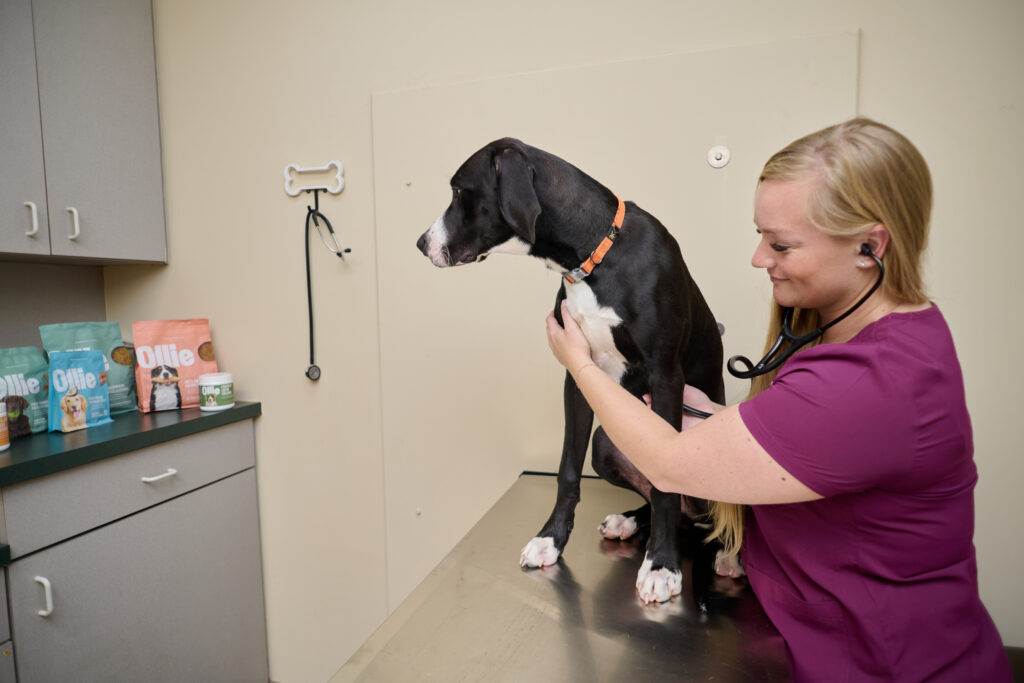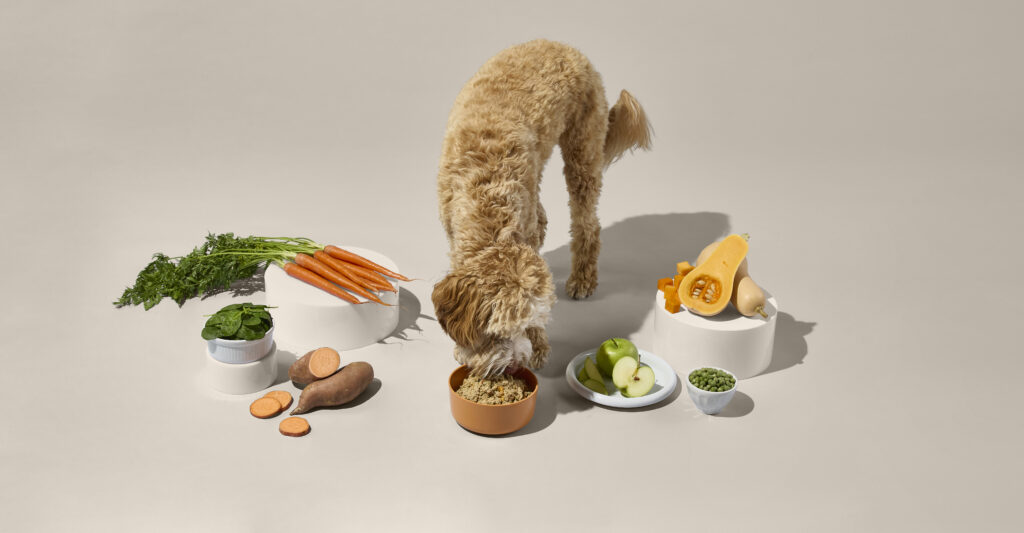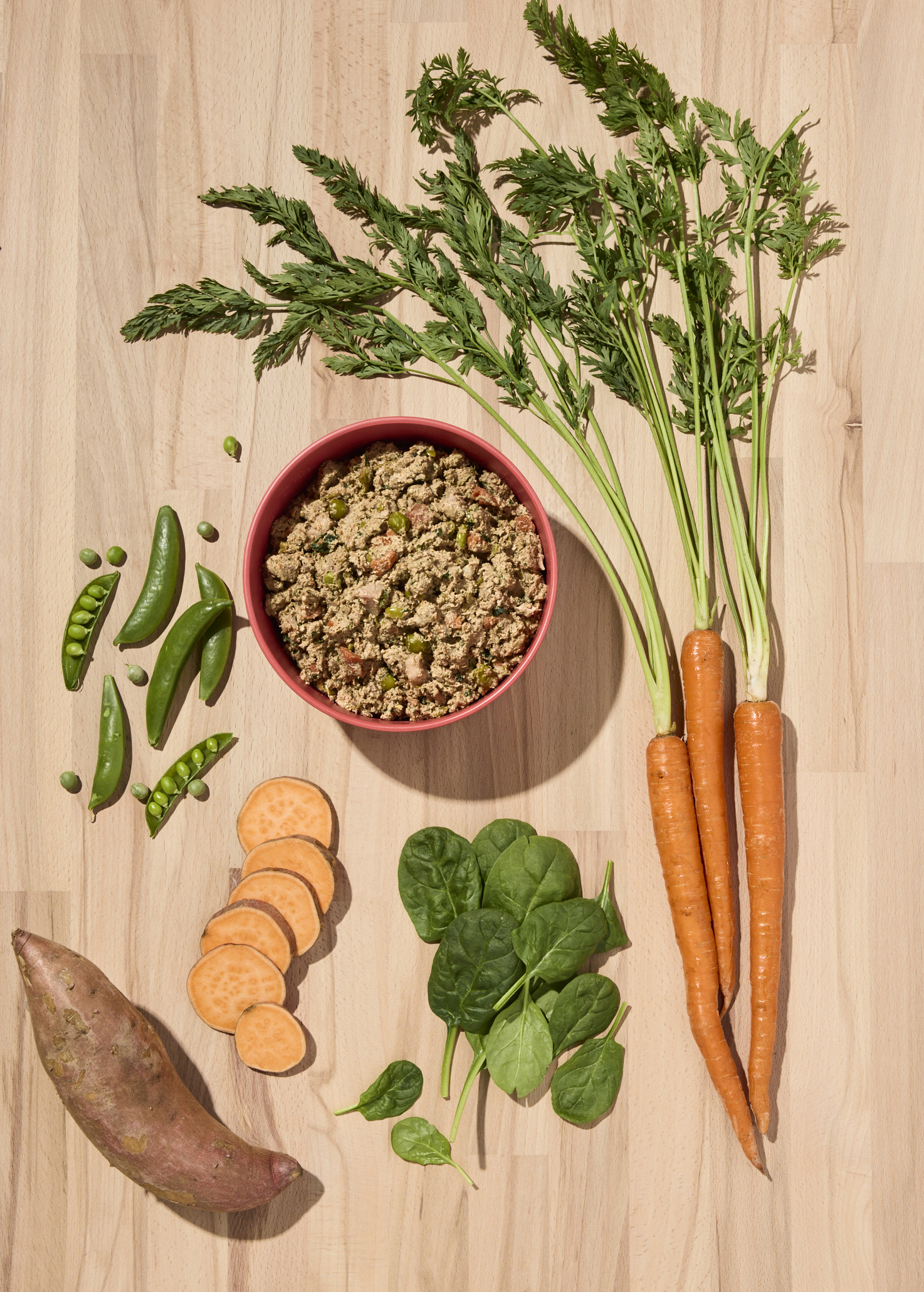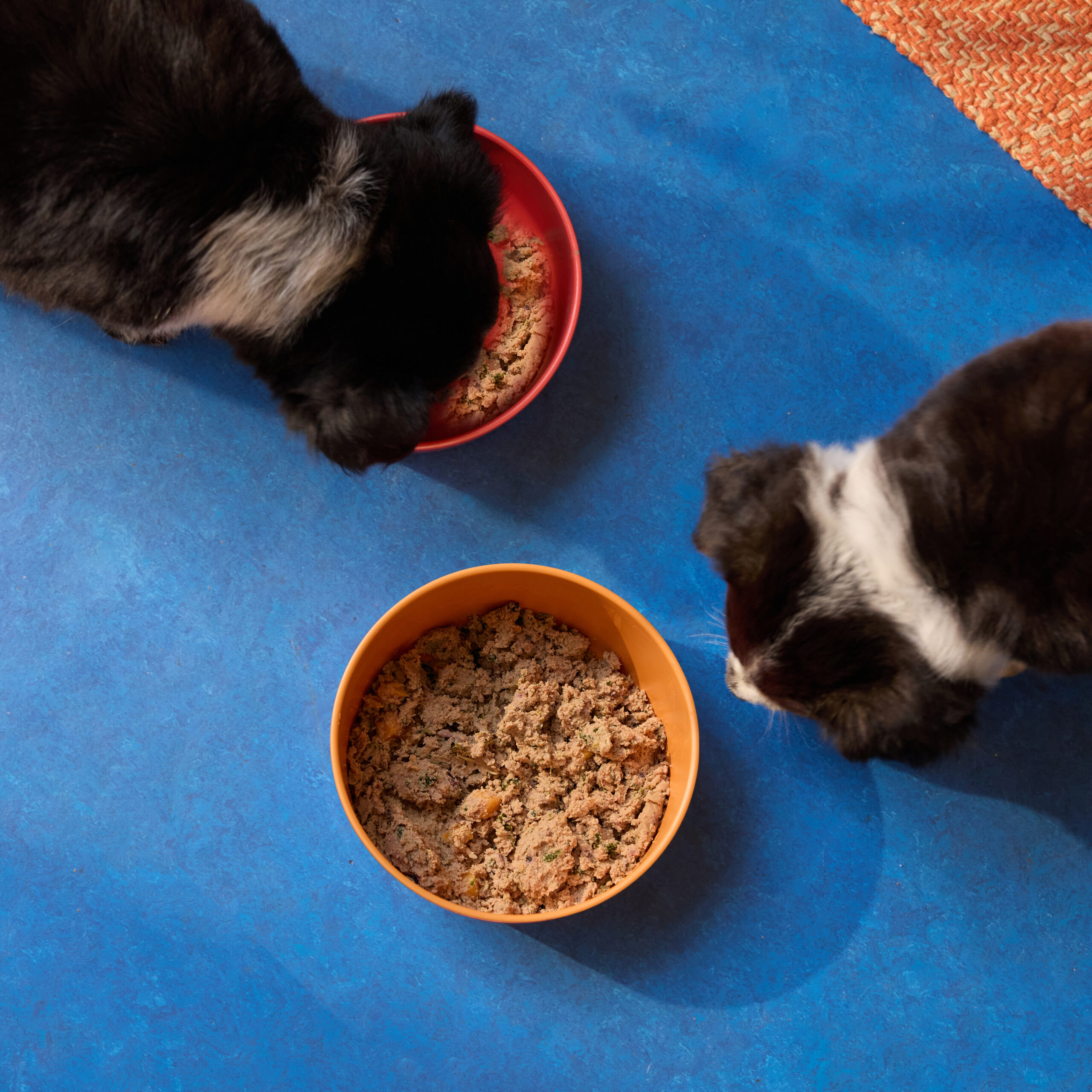Hey Ollie blog readers! We’re offering you an exclusive 60% OFF your starter box! Try now!
When your dog shows signs of discomfort after meals or struggles with persistent skin issues, food allergies or sensitivities might be the culprit. For many pet parents, switching to a grain-free diet often comes into consideration as a way to address these issues. But what’s the real story behind grain-free food for dogs with allergies and sensitivities? In this article, we’ll explore the potential benefits, considerations, and what science tells us about this dietary approach.
Understanding Dog Food Allergies and Sensitivities
Food allergies and sensitivities in dogs can manifest in various ways, from digestive upset to skin problems. While these conditions share similar symptoms, they work differently in your dog’s body.
The Difference Between Allergies and Sensitivities
A true food allergy involves an immune system response where the body mistakenly identifies a food protein as harmful. This triggers an immune reaction that can cause symptoms like itching, gastrointestinal upset, and ear infections[1]. Food sensitivities, on the other hand, typically don’t involve the immune system but still result in adverse reactions when certain ingredients are consumed.

Common Symptoms to Watch For
If your dog has food allergies or sensitivities, you might notice:
- Persistent itching, scratching, or licking
- Recurring ear infections
- Gastrointestinal issues like vomiting or diarrhea
- Red, inflamed skin
- Hair loss in patches
The Potential Benefits of Grain-Free Diets
Grain-free dog food has gained popularity as an alternative for dogs with certain health concerns. While not a universal solution, these diets may offer several advantages for dogs with specific needs.

Reduced Allergic Reactions
For dogs with genuine grain allergies, eliminating grains from their diet can help reduce allergic reactions[1]. While grain allergies aren’t as common as some marketing might suggest, they do exist, and affected dogs may experience relief on a grain-free diet[2].
Improved Digestibility
Some grain-free formulations focus on highly digestible ingredients, which can be beneficial for dogs with sensitive digestive systems. These diets often replace grains with alternative carbohydrate sources like sweet potatoes or peas, which some dogs may process more easily.
Higher Protein Content
Many grain-free dog foods contain higher levels of protein compared to grain-inclusive options. This protein-rich approach can be beneficial for certain dogs, particularly those requiring more protein in their diet for muscle maintenance and overall health[1].
Important Considerations Before Switching to Grain-Free
While grain-free diets may benefit some dogs with allergies and sensitivities, there are important factors to consider before making the switch.
The DCM Concern
In recent years, veterinary research has identified a potential link between grain-free diets and dilated cardiomyopathy (DCM), a serious heart condition in dogs[3] [4].
Taurine Deficiency Risk
Some grain-free diets have been associated with taurine deficiency, which can contribute to heart problems in dogs[3].
Misconceptions About Grain Allergies
There’s a common misconception that grains are a primary cause of allergies in dogs. However, veterinary medicine doesn’t support this belief[5]. In fact, protein sources like beef, dairy, and chicken are more commonly associated with food allergies in dogs than grains[5].
Identifying the Right Diet for Your Dog’s Needs
Finding the appropriate diet for a dog with allergies or sensitivities requires a thoughtful, individualized approach rather than following general trends.
Working with Your Veterinarian
Before making any significant dietary changes, consult with your veterinarian. They can help determine whether your dog truly has food allergies or sensitivities and recommend appropriate dietary adjustments based on your dog’s specific health needs.

Elimination Diets and Food Trials
An elimination diet—removing potential allergens from your dog’s diet and then gradually reintroducing them—can help identify specific food triggers. This process, ideally conducted under veterinary supervision, provides valuable insights into which ingredients your dog should avoid.

How Fresh Food Options Can Help Dogs with Sensitivities
Fresh, human-grade dog food has emerged as an alternative for dogs with food sensitivities, offering several potential advantages over traditional commercial options.
Transparent, Limited Ingredients
Fresh dog food services like Ollie provide complete transparency about ingredients, making it easier to avoid specific components that might trigger your dog’s allergies or sensitivities. With clearly labeled, limited-ingredient recipes, you can make informed choices about what goes into your dog’s bowl.
Customized Nutrition Plans
One of the significant advantages of fresh food services is the ability to customize meal plans based on your dog’s specific needs. At Ollie, we create personalized nutrition plans that consider your dog’s health concerns, including allergies and sensitivities, to provide balanced nutrition without problematic ingredients.
Quality Protein Sources
For dogs with sensitivities to common proteins, fresh food services often offer alternative protein options like turkey, lamb, or fish. These novel proteins can provide complete nutrition while avoiding ingredients that trigger reactions in your dog.
Making the Transition to a New Diet
Gradual Introduction
Abrupt dietary changes can cause digestive upset, even with hypoallergenic foods. Gradually introduce the new food over 7-10 days, slowly increasing the proportion of new food while decreasing the old food.
Monitoring for Improvement
Keep track of your dog’s symptoms during and after the transition. Improvements may not be immediate—it can take several weeks to see significant changes in skin conditions or other allergy symptoms. Document any changes to share with your veterinarian.
When Grain-Free Isn’t the Answer
Identifying the True Culprit
If your dog shows signs of food sensitivity, work with your veterinarian to identify the specific trigger. Protein sources are more commonly responsible for food allergies in dogs than grains[5]. Eliminating grains won’t help if your dog is actually reacting to chicken or beef.
Balanced Nutrition Remains Essential
Whatever diet you choose for your dog with allergies or sensitivities, ensuring complete and balanced nutrition should remain the priority. Avoid diets that eliminate important nutrients in the pursuit of removing allergens.
Conclusion
Grain-free diets may benefit dogs with confirmed grain allergies or certain other sensitivities. However, they’re not a universal solution for all dogs with food-related issues. The best approach is working with your veterinarian to identify your dog’s specific triggers and nutritional needs, then finding a diet—whether grain-free or grain-inclusive—that addresses those
For dogs with food sensitivities, fresh food options like Ollie can provide the transparency, quality ingredients, and customization needed to manage symptoms while supporting overall health. Try Ollie for yourself to see how fresh food can make a difference for your dog.
Citations
[1] https://www.petassure.com/maxscorner/grain-free-dog-food-benefits-versus-grain-inclusive-pet-food/
[2] https://www.becopets.com/blogs/news/is-grain-free-dog-food-hypoallergenic
[3] https://www.petmd.com/dog/nutrition/are-grain-free-diets-bad-for-dogs
[4] https://www.smalldoorvet.com/learning-center/nutrition/grain-free-diet-dogs
[5] https://www.purina.com/articles/dog/health/nutrition/grain-vs-grain-free-dog-food
Tagged As:

The nutrition your dog needs,
the food they want.

Enjoying our articles? Subscribe our Newsletters and get new articles directly to your inbox
You might also like
8 September 2025
9 MINS READ
Top Natural Puppy Food Picks for Healthy Growth
Bringing home a new puppy means a lot of excitement—and important nutrition decisions. Because puppies require more calories, fat, protein, and essential nutrients than adult dogs [1], you may w…
by Ollie Pets
8 September 2025
9 MINS READ
New Pup Feeding Chart: First 8 Weeks Explained
Welcoming a new puppy is an exciting experience, but it can also be overwhelming—especially when it comes to their nutrition. While the first eight weeks are crucial for your dog’s development…
by Ollie Pets
8 September 2025
7 MINS READ
Is Your Pup Bored with Dinner?
Eating the same thing day in and day out might get boring for a human, but dogs don’t experience food exactly the same way we do. With that in mind, the answer to whether dogs get tired of eating …
by Ollie Pets







